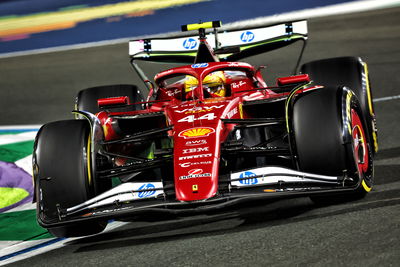F1 rejects "wrong" rumours it could delay 2022 rules until 2023

Formula 1 has denied suggestions the sport is considering delaying the 2022 regulation overhaul by a further year in the wake of the ongoing coronavirus pandemic.
In response to the outbreak of the coronavirus crisis last year, F1 bosses agreed to defer the planned 2021 rules - which are set to revolutionise the series with the introduction of a brand new car to try and improve racing - until 2022.
A report in Italy’s Gazzetta dello Sport on Wednesday claimed that F1 is currently evaluating whether to delay the impending revamp to the technical regulations for another year until 2023.
The suggestion was that the current generation of cars would be carried over for a third season in 2022, before the new regulations were implemented in 2023 amid concern over the ongoing pandemic and the emergence of a new, highly transmissible variant that has forced the United Kingdom into a third national lockdown this month.
But F1 has moved to reject the speculation, insisting the championship is continuing to press ahead with its plans for the new regulations to arrive in 2022.
In a statement provided to Crash.net, an F1 spokesperson said: “Any suggestion the 2022 regulations will be delayed is wrong and has not been discussed.
“The new regulations are designed to improve competition on track and give our fans closer racing. This combined with the new financial regulations will improve Formula 1 and create a healthier and stronger business model for the whole sport.”
F1’s 10 teams suffered a financial blow due to the disruption caused by the coronavirus pandemic, which forced the opening 10 rounds of the 2020 season to be cancelled and the calendar to be largely revised.
But after successfully pulling together a 17-round, European-centric schedule last year, there is renewed hope F1 can carry out its record-breaking 23-round 2021 schedule without having to make too many changes.
F1 revealed a revised 2021 calendar on Tuesday which will result in the 2021 season being delayed by a week, with the planned season-opener in Australia being shifted to November, and the Chinese Grand Prix postponed.
The introduction of a $145 million budget cap for this year has eased some of the pressure on teams and has been created to ensure that development spend will not spiral out of control.












